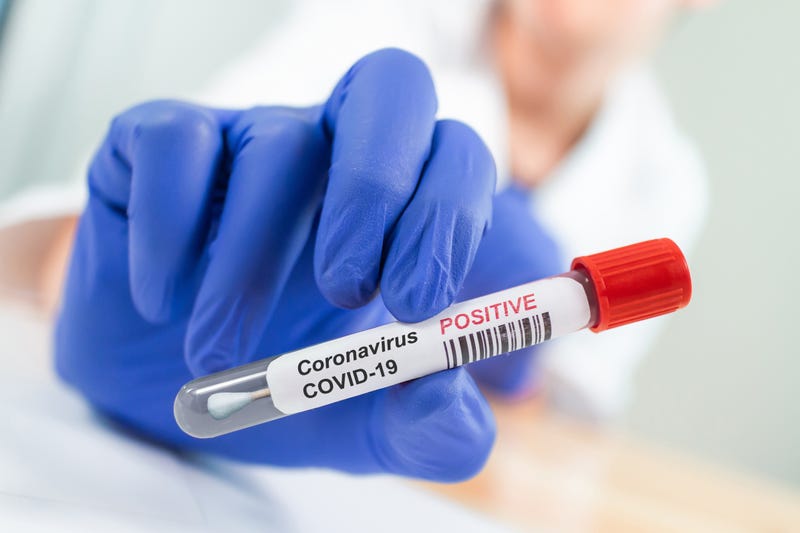
CHICAGO (WBBM NEWSRADIO) -- The United Kingdom variant of coronavirus has been found in Chicago, city and state health officials announced Friday.
The new, more contagious strain was first identified in the United States about two weeks ago in Colorado and has since been identified in several other states.
According to public health officials, the case was identified by the Northwestern University Feinberg School of Medicine through "sequencing analysis of a specimen from bio-banked samples of COVID-19 positive tests."
A follow-up case investigation by the Chicago Department of Public Health found that the patient who tested positive for the new variant had travelled to the UK and the Middle East in the 14 days prior to the diagnosis. CDPH has worked to identify close contacts of the individual to reinforce the importance of adherence with quarantine and isolation measures.
Evidence suggests that this variant can spread more easily than most currently-circulating strains of COVID-19, but there is no evidence that the new strain affects the sensitivity of diagnostic tests or that it causes more severe illness or increased risk of death. In addition, data suggest current vaccines will be effective and safe in providing protection against the variant.
“This news isn’t surprising and doesn’t change our guidance around COVID-19. We must double down on the recommended safety strategies we know help stop the spread of this virus,” said CDPH Commissioner Allison Arwady, M.D. “In order to protect Chicago, please continue to wear a mask, practice social distancing, wash your hands often, do not have outside guests in your home, and get vaccinated when it is your turn.”
CDPH, IDPH and the U.S. Centers for Disease Control and Prevention (CDC), in collaboration with various public health agencies, are closely monitoring this strain.
“When we learned of this and other COVID-19 variants, we increased our surveillance efforts by performing genomic sequence testing on an increased number of specimens,” said IDPH Director Dr. Ngozi Ezike. “We will continue to collaborate with our academic partners, local health departments like CDPH, hospitals, and the CDC to monitor for additional cases.”
The COVID-19 virus, like other viruses, constantly changes through mutation, and new variants of a virus are expected to occur over time. According to the CDC, this variant is estimated to have first emerged in the UK during September 2020.
Other novel variants of SARS-CoV-2, which also might change the way the virus transmits or behaves, have been identified in South Africa, Nigeria, Brazil, Japan and the US. More novel strains are likely to be identified in the coming weeks and months.
As a pre-cautionary measure, the CDC earlier this week announced that all international passengers headed to the United States will first need to show proof of a negative coronavirus test, a policy which goes into effect on Jan. 26. The new policy requires all air passengers, regardless of vaccination status, to get a test for current infection within the three days before their flight to the United States departs, and to provide written documentation of their test results or proof of having recovered from COVID-19.
Meanwhile, state health officials reported 6,642 new cases of COVID-19 statewide. The new cases were among 107,156 tests sent to the Illinois Department of Public Health over the past 24 hours, lowering the state’s test positivity rate to 6.5% from 6.8%. The state also reported 123 additional deaths.
The total number of coronavirus cases now stands at 1,059,324 since the start of the pandemic, health officials said. At least 18,049 people in Illinois have died from the virus.
As of Thursday night, 726,475 doses of the COVID-19 vaccine have been delivered to providers in Illinois, plus an additional 268,525 doses allocated to the federal government’s Pharmacy Partnership Program for long-term care facilities. This brings the state’s total doses to 995,000.
At least 447,348 doses of the COVID-19 vaccine have been administered so far in Illinois, including 56,624 for long-term care facilities officials said.



